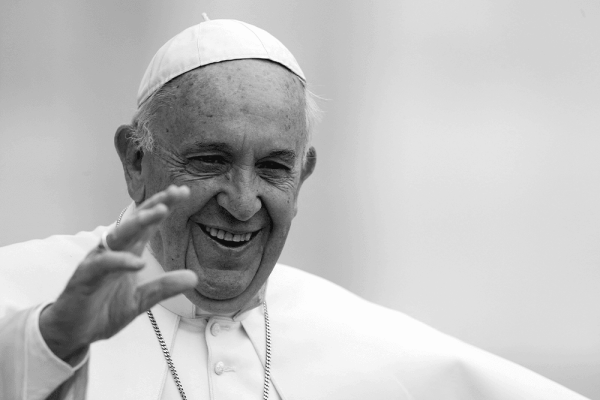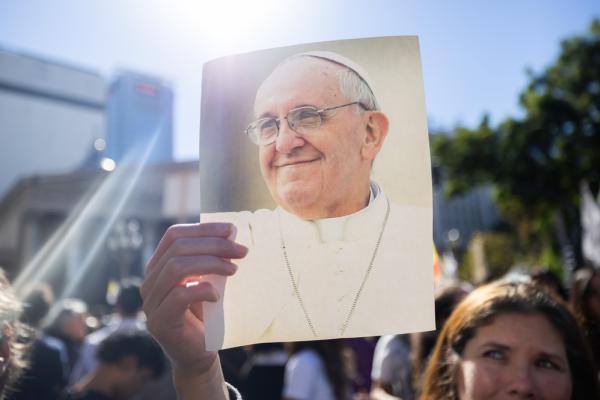“In schools of theology Negroes are taught the interpretation of the Bible worked out by those who have justified segregation and winked at economic debasement of the Negro sometimes almost to the point of starvation. Deriving their sense of right from this teaching, graduates of such schools have no messages to grip the people whom they have been ill-trained to serve.” —Carter G. Woodson, The Mis-Education of the Negro, 1933
Twenty-two years before Rosa Parks refused to give up her seat on a Montgomery bus, launching one of the greatest church-led social justice movements in U.S. history, Carter G. Woodson wrote a staggering critique regarding the inability of U.S. seminaries to adequately train future black church leaders to respond to their people’s social crises. Now, 84 years after Woodson’s commentary, in the midst of a need for a contemporary church-led social justice movement-equivalent, the vast majority of U.S. seminaries are still ill-equipped to help black church leaders save dying communities.
Presently, Duke Divinity School, widely recognized as one of the pre-eminent seminaries in the United States, is undergoing a particularly turbulent period of racial insensitivity. In response to a female professor’s suggestion for all faculty to attend a training in diversity, a white male professor not only objected, but attempted to dissuade his colleagues from attending. His reasoning centered around a return to scholarship and research as priority over learning how to create a more inclusive environment for all members of the Duke Divinity School community.
To make matters worse, the desire to suppress black voices graduated from the faculty to the student body and alumni. One recent graduate of the seminary wrote that while at Duke, she grew exasperated by the seminary’s attempts to respond to black students’ constant expressions of pain and rejection. Instead, she affirmed that Duke is no more racist than any of the environments that she has navigated — as a white woman in the U.S. This student was met with a harsh rebuke, with her detractors stating that she was “in denial of the harsh realities of racism.”
The lack of concern and empathy to create a more inclusive environment for black students and faculty who only desire to acquire the tools to advance their vocational abilities are just one of many examples of the indifference of white-led seminaries (students, professors, and administrators) towards the black experience.
Sadly, Duke Divinity School is not alone in this reality.
The decision to matriculate black seminarians who desire to fight for “the least of these” should confirm the seminary’s ability to empathize and collaborate with the seminarian to achieve the student’s intended goal. But many white-led seminaries, across denominations, have not cultivated an ethos of solidarity with the plight of the black seminarian, leaving black students at a pedagogical loss as a result of the institution’s misrepresentation.
There are not many seminaries in the United States that primarily focus on equipping future black church leaders, and those that do are grossly underfunded. According to the 2016 Annual Report of the Association of Theological Schools, of 232 participating seminary/divinity schools, only approximately 18 have a program strictly for black students – lower than any other ethnic minority background. Further, all six ATS-accredited predominantly black seminaries needed an endowment in 2015 from the Lilly Foundation to help strengthen fundraising, as all six schools were suffering from low student enrollment and other “challenges.”
Being underfunded is a present reality for both black seminaries and black seminarians,meaning black students are essentially forced to go where the money is — usually a “PWI” (predominantly white institution) .
For purposes of appearing inclusive, white-led seminaries market themselves to black students as having the necessary resources to train them to achieve their vocational calling. Unfortunately, as evidenced by insensitivity to the black experience and continual perpetuation of white-washed curriculums, these institutions lack the basic understanding of the needs of black seminarians.
Chief among those needs are curriculums dedicated to equipping pastors to assist in revitalization of impoverished communities through the prophetic witness of black churches, as well as opportunities for the practical application of these teachings.
A typical curriculum in white seminaries offers little assistance for social crisis ministry. In his 2008 book, Black Theology and Pedagogy, Professor Noel Leo Erskine, one of my professors at Candler, recounts the plea by first-generation black theologian J. Deotis Roberts to white-led seminaries for curriculum reform. Erskine quotes Roberts thusly,
Black seminarians at predominantly white seminaries are asking to be recognized as persons of worth. They are calling for attention to curriculum offerings more in keeping with their future ministry…
And just this year, in the Journal of Biblical Literature, Asian biblical scholar Tat-Siong Benny Liew lamented over the lack of contextually black biblical scholarship within the most-used biblical studies seminary textbooks.
While there is no disputing the valuable contributions of Origen, Tertullian, Aquinas, and Luther, these men cannot offer the practical ministerial tools to combat any number of the numerous realities plaguing the ‘hood. There is a need to highlight the work of pastor-theologian-activists other than Rev. Dr. Martin Luther King, Jr. Courses on Adam Clayton Powell (Sr. and Jr.), Gardner C. Taylor, and Samuel Proctor, among countless others who have successfully built churches and communities through their efforts, would provide more adequate contextual knowledge respective to the call of black seminarians.
Further, many Christian history courses purposefully neglect the truth: that Africans played a significant role in Christianity’s theological and doctrinal development. Grossly understated is the fact that Christian churches were established in African countries such as Egypt, Nubia, and Ethiopia for well over a millennium — far from a common conception of Africans as voodoo practicing “savages” who didn’t interact with the Christian God until missionary and slave journeys in the 17th century.
These facts, while trivial to some, are necessary to inspire black seminarians in their study, and to counteract the misinformed belief that black people are somehow inferior to their white counterparts.
Most troubling, perhaps, is white seminaries’ lack of cultural sensitivity toward students’ daily trauma living as black men and women in the United States. My classmates and I walked into Candler in the days and weeks after the deaths of Terence Crutcher, Korryn Gaines, and Philando Castile and were met with no sympathy. We were on campus as the news broke of a mistrial in the Walter Scott shooting and received no empathy from the administration. Other black seminarian friends of mine in white-led seminaries grabbed each other and prayed on their own when they learned that no one would answer for the death of Freddie Gray, as there was no intentional space created for lament purposes.
For seminary administrations and faculty to operate with a business-as-usual approach after these experiences unflatteringly mirrors the indifference of U.S. society at large. This is deeply disturbing for institutions dedicated to cultivating leaders to repair the ills of society. Seminary indifference testifies not only to a lack of concern for all human life — it also relays a message of indifference to the vocation of the very students they agreed to help upon admission.
White seminaries must re-imagine their standing as an ally to black seminarians. They must emerge from their dismissive slumber and align themselves on the margins with the very people who they have offered their services to equip.
If achieved, white seminaries can find themselves in solidarity — not only with black students, but also with the disadvantaged communities God has commissioned us to care for.
Correction, 5/22: A previous version of this article incorrectly stated that Duke's diversity training was suggested by a black professor. That error has been corrected.
Got something to say about what you're reading? We value your feedback!






